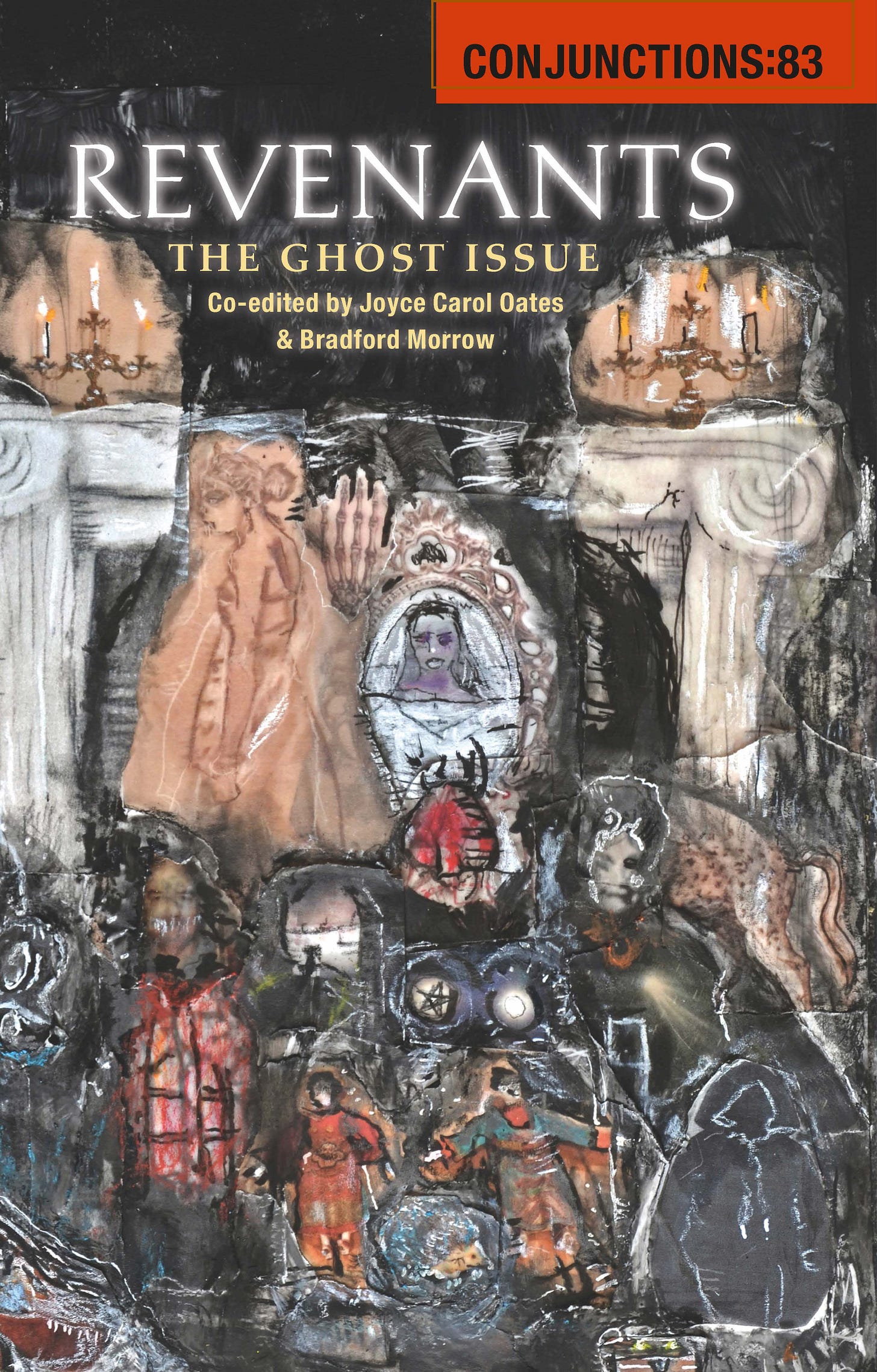Endlings
"I started watching the Warrens’ children because my mother’s dead sister was hanging around, giving everyone a hard time."
As previewed a few days ago, I have a new story in the new issue of Conjunctions, edited by Joyce Carol Oates. Today, it’s available online at LitHub. The story is also from my forthcoming linked story collection, A Brief and Fearful Star1.
I wrote this story in a feverish pitch over a couple of days this year. I’d been turning over the concept for a while—marrying historical figures with The Turn of the Screw with 70s babysitter urban legends, all set in the world of the collection where a peculiar comet makes trouble across time—but it was all very loose and I was having trouble getting inside. Then the I wrote the narrator’s opening scene and the whole thing broke wide open. I’m writing a different project in third person right now2, but this story reminded my why I so frequently gravitate towards first-person narrators in my short stories. There’s an immediacy of consciousness—this slipperiness between myself and the protagonist, who is something of me and also their own being entire. (No one tell Anna Kornbluh.) The result is a story that, while containing almost no autobiographical details of any kind, is entirely autobiographical3.
I tried to read it out loud to an audience exactly once, at the Fine Arts Work Center where I taught this summer, and I cried so hard I could barely finish. It was awful. Even though everyone was really nice about it, which somehow made it worse. I got in my head afterwards that people would assume that [redacted] or [redacted] had happened to me, that it was somehow a story about my own trauma and I was narcissistically obsessed with my own feelings—hence the lachrymose display. Later, drunk on the streets of Provincetown, I tried to articulate to my partner and a friend and fellow instructor why it might feel this way. It was—I imagine saying elegantly and coherently, though I’m sure it was neither—as if the space formed by the story, or perhaps the narrator’s consciousness, was the same shape as some room in my mind, and even though they were not the same room, they were so close as to be indistinguishable. I can’t really explain it better than that. I have never fully understood this thing that I, that we, do. I imagine I never really will.
I’m proud of the story. It’s really the only real creative project I have to show for this year. So I love it, this sad fucking story that I can’t read out loud because it hits some hadal beat in me that I can’t quite name.
Yes, the one I’m trying desperately to finish. (Pray for me.)
A novel with at least two narrators. So the third person makes sense? But it’s new territory for me, and very interesting.
To be clear—and I say this because of exasperating past and certainly ongoing discourse on this precise subject—this is not an essential or necessary or moral element of fiction writing. I’m just describing my experience with my story.





¡qué interesantes tus reflexiones en vivo y en directo sobre el punto de vista! Justo hoy leía una frase de Piglia sobre esto.
“Later, drunk on the streets of Provincetown,” is absolutely a short story collection.